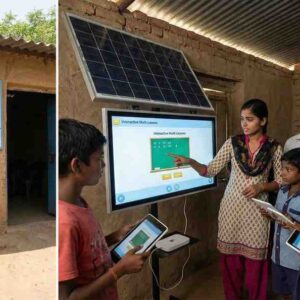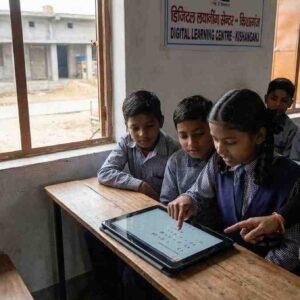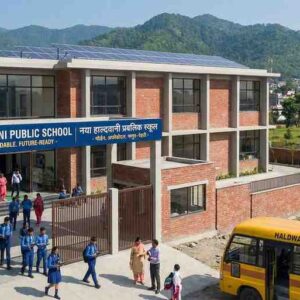Introduction: Expanding Educational Goals
As the world becomes increasingly complex and interconnected, the traditional job-centric education model is proving inadequate for preparing students for the multifaceted challenges of the future. Knowledge-focused education, which emphasizes comprehensive learning and understanding across a wide array of disciplines, equips students not just for specific careers but for a diverse range of future possibilities. This approach fosters critical thinking, adaptability, and a deep-seated love for lifelong learning, essential for navigating the unpredictable landscape of tomorrow’s world.
1. Building a Strong Foundation of Core Knowledge
Comprehensive Understanding Across Disciplines
- Knowledge-focused education prioritizes depth and breadth of understanding, covering a spectrum of disciplines from the sciences and humanities to arts and technology. This broad educational base fosters versatility, allowing students to apply skills and insights across different fields and situations.
- Statistical Insight: Research from the Educational Testing Service indicates that students exposed to a broad curriculum are better at problem-solving and critical thinking than those who focus narrowly on job-specific skills.
Cultivating Critical Thinking and Analytical Skills
- A core aim of knowledge-focused education is to develop students’ critical thinking and analytical abilities. These skills enable individuals to evaluate information, make informed decisions, and solve complex problems, which are invaluable in any career and essential for personal growth.
- Global Relevance: According to the World Economic Forum, critical thinking is among the top skills needed in the 2025 workforce, highlighting its importance across global job markets.
2. Encouraging Intellectual Curiosity and Lifelong Learning
Fostering a Love for Learning
- Beyond preparing for immediate job prospects, knowledge-focused education encourages a lifelong passion for learning. Cultivating intellectual curiosity ensures that students remain learners throughout their lives, continually adapting to and growing in an ever-changing world.
- Cultural Impact: Studies suggest that individuals who engage in continuous learning are more adaptable to economic shifts, contributing to lower unemployment rates and higher job satisfaction rates.
Adapting to Future Challenges
- In a rapidly changing world, the ability to learn and adapt is as crucial as the knowledge itself. A curriculum that encourages exploration and discovery prepares students to face unforeseen challenges and opportunities, equipping them with the agility to navigate future technological and societal changes.
3. Promoting Interdisciplinary Learning and Innovation
Integration of Diverse Knowledge Areas
- Knowledge-focused education promotes the integration of diverse subjects, enhancing students’ ability to draw connections between different areas of study. This interdisciplinary approach is key to innovation, as it enables students to combine ideas in unique ways to create new solutions and perspectives.
- Practical Application: Schools and universities are increasingly promoting STEAM (Science, Technology, Engineering, Arts, and Mathematics) programs, which have been shown to boost student creativity and engagement, according to the American Educational Research Association.
Preparing for Diverse Career Paths
- By providing students with a robust knowledge base and critical skills, education systems prepare them for a range of career paths. This flexibility is particularly important in a global economy where industries evolve and new fields emerge regularly.
- Career Flexibility: Data from LinkedIn shows that individuals with interdisciplinary education are more likely to switch careers successfully and find innovative niches within competitive industries.
4. Enhancing Social Awareness and Responsibility
Understanding Global and Cultural Contexts
- A knowledge-focused curriculum includes global awareness and cultural studies, helping students understand and navigate the complex social and ethical landscapes of the modern world.
- Social Cohesion: Educators argue that comprehensive education contributes to social cohesion and civic engagement, as students learn to think critically about societal issues and contribute positively to their communities.
Conclusion: Preparing for a World of Possibilities
A knowledge-focused education system prepares students not just for the jobs of today but for a lifetime of opportunities and challenges. By fostering comprehensive knowledge, critical thinking, and a passion for ongoing learning, such an approach ensures that students are ready to thrive in diverse and changing environments. As we look to the future, it is clear that education must be about more than training for specific roles; it must be about preparing thoughtful, adaptable, and informed citizens ready to contribute to a global society.










